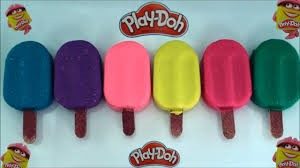A goal-den opportunity: Cole Palmer files UK trade mark application for shivering celebration
Cole Palmer has filed a UK trade mark application for his shivering celebration, marking an increasing development in the…

The smell of Play-Doh is for many reminiscent of childhood. Play-Doh originally exhibited their product in the US back in 1956, and over the years the smell of the product has become well-known. Scent marks have been available in theory in the US since the 1990s. Hasbro have now joined a select club of just 13 other registered scent marks in the US.
Successfully registering a smell as a trade mark in the US is challenging.
You must show that the smell is not functional. For example, the smell of a perfume could not be registered as this is considered to have a function. It is also necessary to show that the scent is distinctive. Hasbro will have been required to submit significant amounts of evidence to show that the smell is considered to be distinctive by a significant proportion of the American public.
Hasbro described the smell as “sweet, slightly musky, vanilla fragrance, with slight overtones of cherry, combined with the smell of a salted, wheat-based dough.” It is of course challenging to precisely define a smell through the use of words but this is an acceptable practice in the US.
Whilst theoretically possible, it is challenging to register smell marks in the UK and EU because of the requirement for trade marks to be precisely defined. For a scent to be registered it is necessary for it to be represented in a manner which is clear, precise, self- contained, easily accessible, intelligible, durable and objective – a challenging bar to overcome. Unfortunately, representing a smell as a chemical formula via a written description or an odour sample is not considered to be acceptable. The EUIPO recognise that there is currently no way of documenting a smell in a satisfactory way.
In order to progress the ability to register scent marks in the UK and EU it will be necessary to find a way of successfully coding smells, much like we do with colours, in order to make it easier to register them.
As consumers do not normally associate smells with a distinctive trade mark origin it seems that scent registrations will continue to be rare. However, scent marks could be a vital tool for some businesses to help them to capitalise on their intellectual property.
Time will tell whether Hasbro will be able to successfully enforce their trade mark registration against “confusingly similar” smelling goods. Hasbro will certainly be hoping that they have gained an advantage over their competitors. The new scent registration is likely to help Hasbro to ring fence their space in the competitive toy market sector.
Hasbro are showing their ability to think creatively about their intellectual property portfolio. If you would like to discuss your IP and any unexploited assets you may have, please speak to a member of the Wilson Gunn team.